Intro
Discover what lactulose is, a synthetic sugar used to treat constipation, hepatic encephalopathy, and promote gut health, with benefits including softened stools, increased bowel movements, and reduced ammonia levels.
Lactulose is a synthetic sugar used primarily as a laxative to treat constipation, as well as in the management of hepatic encephalopathy, a condition where the liver is unable to remove toxins from the blood, leading to brain dysfunction. Its importance in medical treatment cannot be overstated, as it addresses significant health issues that affect a wide range of the population. Understanding lactulose, its uses, benefits, and how it works is crucial for both medical professionals and individuals seeking to manage these conditions effectively.
The role of lactulose in healthcare is multifaceted. On one hand, it helps individuals with constipation by promoting bowel movements, thus preventing complications such as fecal impaction or diverticulitis. On the other hand, its application in managing hepatic encephalopathy highlights its potential in neuroprotection and detoxification. This dual functionality makes lactulose a valuable medication in the pharmaceutical arsenal against gastrointestinal and liver-related diseases.
For individuals suffering from constipation or hepatic encephalopathy, lactulose offers a beacon of hope. Constipation, while common, can significantly impact one's quality of life, leading to discomfort, pain, and in severe cases, more serious health issues. Hepatic encephalopathy, with its cognitive and motor function impairments, poses a significant challenge to patients and their caregivers. Lactulose, through its unique mechanism of action, provides relief and management options for these conditions, underscoring its importance in modern medicine.
How Lactulose Works
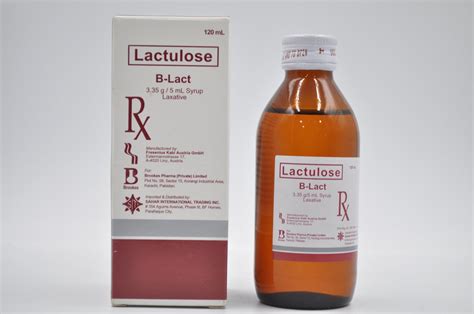
Lactulose works by drawing water into the bowel from the surrounding body tissues, allowing for softer stools and making it easier to pass. This osmotic effect is primarily due to the fact that lactulose is not absorbed from the gastrointestinal tract, making it an effective laxative. In the case of hepatic encephalopathy, lactulose acts by reducing the production and absorption of ammonia in the gut, which is a toxin that can cause brain dysfunction when it reaches the brain in significant amounts. The reduction of ammonia levels helps in improving the mental status of patients with hepatic encephalopathy.
Lactulose and Constipation
The use of lactulose for constipation relief is well-documented. It is particularly beneficial for individuals who experience hard stools or have difficulty in passing stools. Lactulose can be prescribed for both acute and chronic constipation, offering a reliable solution for those seeking to establish regular bowel movements. Its effectiveness in promoting a bowel movement within 24 to 48 hours makes it a preferred option for many patients and healthcare providers.Benefits of Lactulose
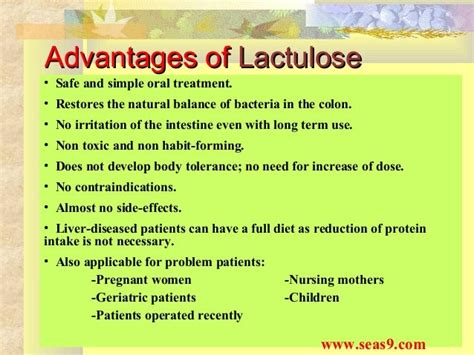
The benefits of lactulose are numerous. For individuals with constipation, the primary benefit is the relief from the discomfort and pain associated with difficult bowel movements. Lactulose also helps in preventing potential complications of constipation, such as hemorrhoids or anal fissures. In the management of hepatic encephalopathy, lactulose improves cognitive function, reduces the risk of coma, and enhances the overall quality of life for patients. Additionally, lactulose has a relatively safe profile, with side effects being generally mild and temporary, making it a well-tolerated treatment option.
Side Effects of Lactulose
While lactulose is generally well-tolerated, it can cause some side effects. Common side effects include bloating, gas, and stomach cramps. These side effects are usually mild and may decrease as the body adjusts to the medication. In some cases, lactulose can cause diarrhea, especially if taken in high doses. It is essential for patients to follow the prescribed dosage and consult their healthcare provider if they experience any discomfort or if side effects persist.Usage and Dosage
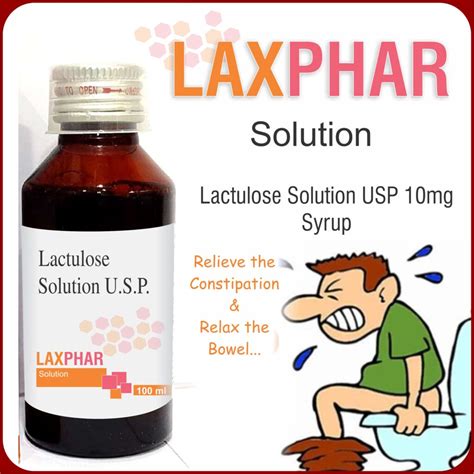
The usage and dosage of lactulose depend on the condition being treated. For constipation, the typical dose for adults is 1 to 2 tablespoons (15 to 30 mL, containing 10 g to 20 g of lactulose) once daily. The dose may be adjusted based on the patient's response. For hepatic encephalopathy, the dosage is usually higher, starting with 30 to 45 mL (20 to 30 g) three to four times daily, adjusted to produce 2 to 3 soft stools per day. It is crucial to follow the healthcare provider's instructions and not to exceed the recommended dose without consulting a medical professional.
Interactions and Precautions
Lactulose can interact with other medications, and certain precautions need to be taken. For instance, lactulose may decrease the absorption of other drugs taken orally. Patients should inform their healthcare provider about all medications they are taking, including prescription, nonprescription, and herbal products. Additionally, individuals with diabetes should monitor their blood sugar levels closely, as lactulose contains sugars. Patients with intestinal obstruction or those who require a low-galactose diet should use lactulose with caution.Practical Considerations
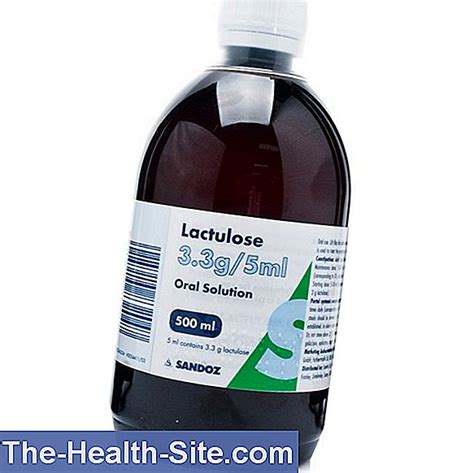
Practically, lactulose is a straightforward medication to incorporate into daily life. It can be taken with water or other liquids, and it is recommended to take it at the same time every day to establish a routine. Patients should also increase their fluid intake to help prevent dehydration, which can occur due to the laxative effect. Regular follow-ups with a healthcare provider are essential to monitor the effectiveness of the treatment and adjust the dosage as needed.
Dietary Advice
Diet plays a significant role in managing both constipation and hepatic encephalopathy. A high-fiber diet can help promote regular bowel movements, while a diet low in protein can help reduce the production of ammonia in patients with hepatic encephalopathy. Patients taking lactulose should consider consulting a dietitian to develop a personalized diet plan that complements their medication regimen.Future Perspectives
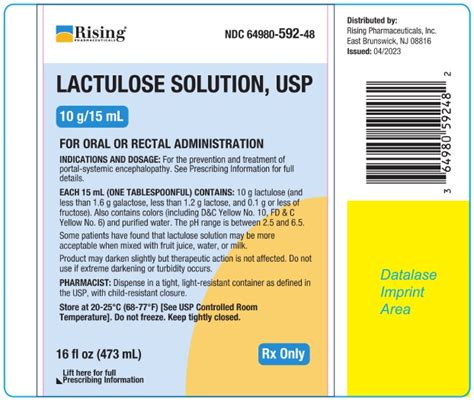
Looking into the future, research is ongoing to explore new applications and formulations of lactulose. The potential for lactulose to be used in the prevention or treatment of other conditions, such as irritable bowel syndrome or inflammatory bowel disease, is an area of interest. Additionally, advancements in drug delivery systems may lead to more effective and convenient ways to administer lactulose, further enhancing patient compliance and outcomes.
Conclusion and Next Steps
In conclusion, lactulose is a versatile medication that offers significant benefits in the management of constipation and hepatic encephalopathy. Its mechanism of action, benefits, and practical considerations make it a valuable treatment option for patients. As research continues to uncover new potential uses and improvements in lactulose therapy, it is essential for healthcare providers and patients to stay informed about the latest developments. By working together and leveraging the full potential of lactulose, we can improve the quality of life for individuals affected by these conditions.What is lactulose used for?
+Lactulose is used to treat constipation and hepatic encephalopathy, a condition where the liver is unable to remove toxins from the blood, leading to brain dysfunction.
How does lactulose work for constipation?
+Lactulose works by drawing water into the bowel, allowing for softer stools and making it easier to pass, thus relieving constipation.
Can lactulose be used for other conditions?
+While primarily used for constipation and hepatic encephalopathy, research is exploring its potential use in other gastrointestinal conditions, such as irritable bowel syndrome.
We invite you to share your thoughts and experiences with lactulose in the comments below. If you found this article informative, please consider sharing it with others who might benefit from this information. Your engagement and feedback are invaluable in helping us provide the most relevant and useful content. Thank you for reading, and we look forward to your input!
